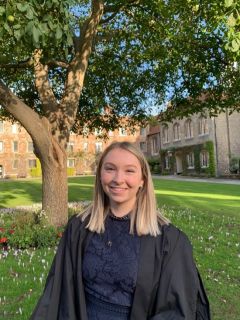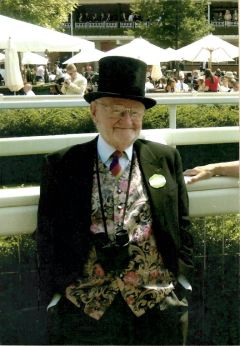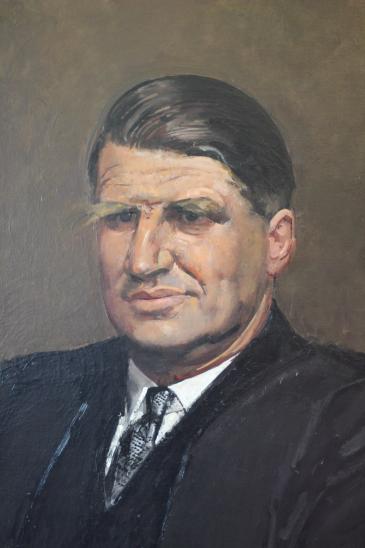The Arthur Armitage Society recognises alumni, their relatives, and friends of Queens’ who are generously giving, or have left, legacies to the College. Membership of The Arthur Armitage Society begins when you let the College know that you, like over 400 others, have included Queens’ in your Will.
For the annual Arthur Armitage Society Newsletter, please see below.
You can find out more about leaving a legacy to Queens’ by contacting the office. We are more than happy to answer any questions you might have.
Letting the College know about your plans to leave a cash gift or a residuary gift of a percentage of your estate is not binding, but does help the College's long-term financial planning. When received, the College will follow legators’ directions to ensure the legacy achieves what the donor planned. Where legacies are unrestricted, the Governing Body takes great care to allocate these to an area which accords with the legators time at Queens’ and their interests.
Legacies from members and friends of the College have made a tremendous difference to all aspects of College life. These include:
- Mr Anthony L. Lyster’s (1949) Will provided three Fellowships, in Mathematics, Modern & Medieval Languages and Sociology, while Mrs Thelma Seear’s Will provided a Fellowship in Architecture & Art History.
- Professor John Baldwin (1949) gave a Physics Fellowship in his Will and Mr Bruce Cleave (1953) has given a College Fellowship in English.
- Professor Robert Haszeldine’s legacy has supported the endowment of a subject fund in Chemistry, while Mr Geoffrey Weaks (1945), a former Crusaders Cricketer, left an unrestricted legacy which is supporting the endowment of The Blues Fund.
- Other legacies have helped provide postgraduate awards, establish a fund to look after and maintain the College gardens, renovate the College’s historic buildings and the Boat Club to acquire new boats.
You can read the thoughts of some Queens' legators about why they have decided to support the College in this way here.
The impact of legacies on Queens' students
Charlotte Rye (2019)
"In the academic year 20/21, I received funding to travel to Ghana for three weeks to complete a mental health placement. I spent my time at Manhyia Government Hospital in Kumasi, observing consultations, updating patient notes, and prescribing medications. I was able to learn so much about the history and development of mental healthcare in Ghana, and how this compares to mental healthcare in the UK. Having the opportunity to complete this project has really helped me to thrive academically as I was able to learn a great deal from the doctors and psychiatric nurses about the possible neurological bases to conditions such as Schizophrenia.
When not at the project, I spent my time living with a local family, and as such, I learnt so much about the Ghanaian culture and even had the opportunity to travel to the Cape Coast and Mole National Park to really embrace everything that the country has to offer – something that wouldn’t have been possible without the support I received".
Charlotte was awarded this funding from the Treglown Fund for undergraduate and graduate travel abroad to undertake worthwhile projects. This was made possible by a gift from the estate of Mr Geoffrey Treglown (1959).
Charlotte was also recently awarded the Hughes Prize, given for outstanding performance by students in their second year of study. The Hughes Prizes were founded in 1777 by The Reverend David Hughes, who was Vice President of the College and Senior Fellow for many years. He left to the College a benefaction of more than 2000 books for the library.
Unrestricted Gifts
During the last 575 years, unrestricted gifts to Queens' have increased the College's financial flexibility so that it can meet new challenges as they arise and maximise the benefit of its funds by directing them to areas of greatest need.
There's no doubt that the last two years have presented significant challenges for the College, our operations and our finances. Unrestricted legacies, such as that received in August 2021 from Mr Jim Hope-Simpson's (1949) estate, allow the College to meet challenges head on.
Each year the College spends over £7 million on the education it provides. With the support of unrestricted gifts, our ability to continue to provide transformational educational opportunities to an ever larger and more diverse group of students has been possible.
Knowing that you have left an unrestricted legacy to the College helps the Fellows with the long-term planning of the College's finances.
Our Fellows' teaching and research
 The Fellowship is central to the life of Queens' and we are most grateful to those who choose to support and strengthen the Fellowship. During his time at Queens', Dr Tim Pick (1946) (pictured right) was the President of the Medical Society at Queens' and won rugby and cricket colours.
The Fellowship is central to the life of Queens' and we are most grateful to those who choose to support and strengthen the Fellowship. During his time at Queens', Dr Tim Pick (1946) (pictured right) was the President of the Medical Society at Queens' and won rugby and cricket colours.
Dr Pick left £600,000 to Queens' to endow a Fellowship in Medicine - a gift which strengthens both our Fellowship and the teaching in Medicine at Queens'. His name will live on in perpetuity in this ancient College.
The inaugural Pick Fellow is Dr Stephen Price, Director of Studies in Clinical Medicine at Queens'. Dr Price is currently the network lead for brain tumours at the Anglian Cancer Network and clinical lead for surgical neuro-oncology.
For more information about leaving a legacy to Queens', please contact development@queens.cam.ac.uk.
